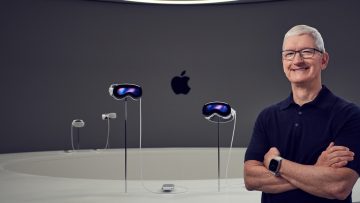Samsung has amazing home-grown mobile chips powering its flagship devices and it’s one of the companies that Apple has depended on for years for mass producing iPhone chips. But even so, Samsung’s chips last year were not able to offer the same performance as Apple’s in benchmark testing.
Why does that happen? A new report looking at Apple’s iPhone chips perfectly explains it. And it also answers one other question: Why does Samsung have to keep copying the iPhone?
DON’T MISS: Apple’s biggest product disasters of all time
Before Android fans point out that everybody copies and Apple is stealing features from Android too, I’ll say that it’s true. Everybody copies and improves on great features and ideas.
Samsung, unfortunately, comes in second place too often. Retina display. 64-bit mobile processors. Fingerprint sensor. Apple Pay. These are some of the things Apple did first and that Samsung then brought to its own devices. 3D Touch and Live Photos are iPhone 6s features that Samsung is rumored to bring to the Galaxy S7.
Is Samsung doing this because it can’t innovate? Is it afraid of taking risks, and prefers to see what how customers respond to Apple’s latest features? No, that’s hardly the case.
Bloomberg Businessweek’s insightful profile of Apple’s secret chip business does offer some interesting details about Apple’s way of doing things when it comes to the iPhone. And it also explains why Samsung has to copy, even if it has (or had) very close access to Apple’s own chip designs.
It’s the software and hardware control that Apple exerts that lets it prevail in its fight with Samsung.
“Engineers and designers can work on features like that years in advance without prematurely notifying vendors—especially Samsung, which manufactures many of Apple’s chips.” Bloomberg writes.
Apple chips “allow the company to customize products to perfectly match the features of its software while tightly controlling the critical trade-off between spend and battery consumption.”
Because it controls the software creation as well as the hardware development, Apple can have the kind of internal meetings that Samsung simply can’t afford. After all, Samsung’s mobile business depends on Google’s Android, which it can’t control.
Comparatively, the chip team inside Apple has a say in what happens with the iPhone and iPad. Apple’s chief guru, 51-year old Johny Srouji, has regular meetings with other departments where design and features are discussed, and Srouji’s job is to make sure the next-gen chip can support the new iPhone’s design and features.
“Srouji’s team found itself interacting regularly with other departments, from software programmers, who wanted chip support for new features, to Ive’s industrial designers, who wanted help making the phones flatter and sleeker,” Bloomberg writes.
While Google cooperates closely with Android OEMs, it’s hardly likely the same kind of cohesion exists between Samsung’s chip team and Google’s Android team.
“An engineer who sat in on Srouji’s meetings remembers senior managers preparing extensively for presentations because his support was critical for getting new features approved,” Bloomberg further adds. “He was known for peppering engineers with technically sophisticated questions, particularly about contingency options if something didn’t work out as planned. He’d ask, for example, if a different form of plastic could be used that wouldn’t interfere with another component.”
What the report seems to suggest is that Apple’s new iPhone features are all carefully planned in advance in a way that Android OEMs just can’t match. And while Samsung can also carefully plan features for the future, it doesn’t have the same control over multiple pieces of the puzzle as Apple does. And that’s why it’ll have to keep following for the foreseeable future.




